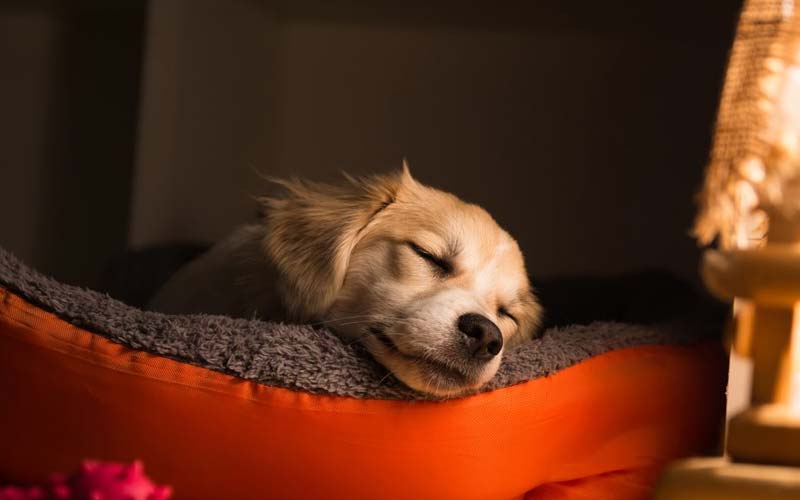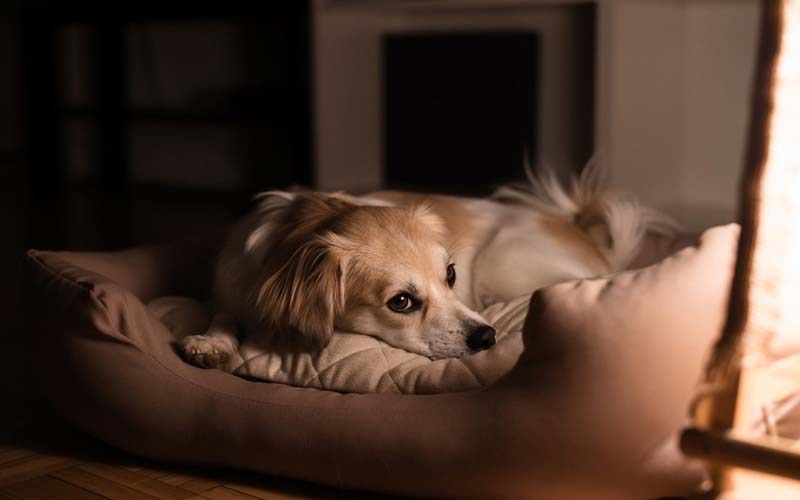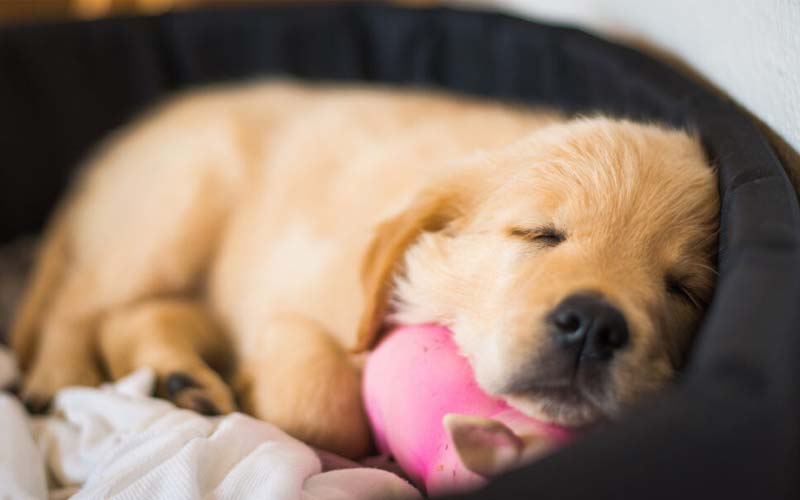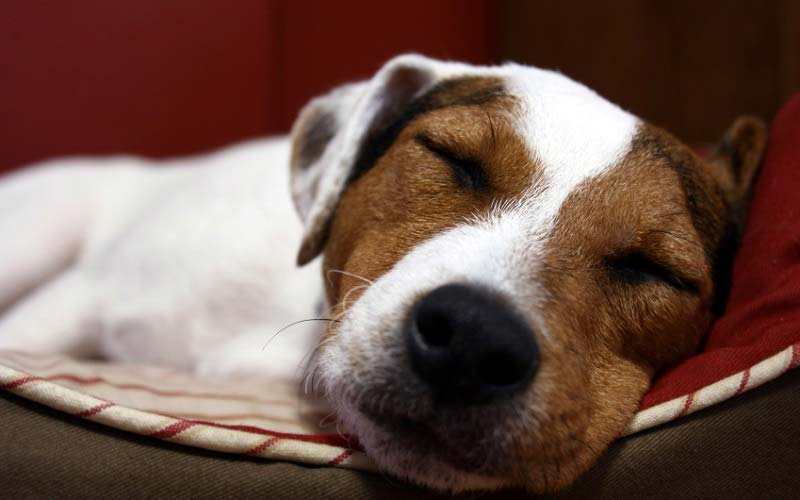Bringing home a new puppy is an exciting and joyful experience, but it also comes with a set of challenges and questions that every new pet owner must navigate. One common concern that often arises is whether or not to leave water out for a puppy during the night. Ensuring your puppy is properly hydrated is crucial for their health and development, but balancing their hydration needs with successful house-training can be tricky.

In this article, we’ll explore the nuances of managing your puppy’s water intake at night. We’ll address the importance of hydration, discuss how it relates to house-training, and provide practical tips for establishing a nighttime routine that keeps your puppy comfortable and minimizes the likelihood of accidents. By the end, you’ll have a clear understanding of whether your puppy needs water at night and how to make informed decisions that support their overall well-being.
1. Understanding Your Puppy’s Hydration Needs
Proper hydration is fundamental to a puppy’s growth, development, and overall health. Just like adult dogs, puppies require water to regulate their body temperature, digest food, and maintain healthy organ function. However, because puppies are in a critical stage of development, their hydration needs are even more pronounced. Dehydration can quickly lead to serious health issues, including kidney damage, urinary tract infections, and delayed physical growth. Ensuring that your puppy is adequately hydrated throughout the day is essential for their well-being.
Factors Affecting Hydration
Several factors influence how much water a puppy needs. Age is a primary consideration—very young puppies, particularly those still nursing, may get much of their hydration from their mother’s milk. As they transition to solid food, their need for water increases. Size and breed also play a role; larger breeds may require more water than smaller ones due to their greater body mass. Additionally, highly active puppies or those living in warmer climates will need more water to compensate for what they lose through panting and sweating from their paws.
Diet is another critical factor. Puppies on a dry kibble diet will need more water than those fed wet food, which contains a higher moisture content. Monitoring your puppy’s daily water intake and adjusting it according to these variables is key to ensuring they stay properly hydrated.
Daytime vs. Nighttime Needs
While puppies need regular access to water during the day, their nighttime needs can be different. During the day, they are more active and consume more food, leading to a higher demand for water. At night, their activity levels drop, and they spend most of their time sleeping, which naturally reduces their need for water. However, this doesn’t mean water should be completely withheld at night. The challenge lies in balancing hydration with the goal of minimizing nighttime accidents, particularly during the house-training phase. Understanding this balance is crucial for creating a nighttime routine that supports both your puppy’s health and your training efforts.

2. The Role of Water in House-Training
Water intake plays a pivotal role in the house-training process. While it’s essential to keep your puppy hydrated, excessive water intake, especially before bedtime, can lead to frequent trips outside during the night and increase the likelihood of accidents indoors. Puppies have smaller bladders than adult dogs, and they lack the control to hold their urine for extended periods. This is why managing water intake in the hours leading up to bedtime is crucial for successful house-training.
Best Practices
To strike the right balance, consider limiting your puppy’s access to water about two to three hours before bedtime. This allows them to empty their bladder before settling down for the night, reducing the need for nighttime potty breaks. However, this practice should be adjusted based on your puppy’s specific needs. For instance, if your puppy seems thirsty after an evening of play or if the weather is particularly warm, it’s important to ensure they are still getting enough water. The goal is not to deprive your puppy of water but to manage their intake in a way that supports their developing bladder control.
Establishing a Routine
Consistency is key in both house-training and managing your puppy’s water intake. Establish a regular evening routine that includes a final trip outside to relieve themselves before bed. By doing this consistently, your puppy will start to learn when to expect their last drink and last bathroom break, which helps set them up for a successful night. Over time, as your puppy grows and their bladder control improves, you can gradually adjust this routine to suit their changing needs.
3. When to Allow Water at Night
While managing water intake at night is generally beneficial for house-training, there are situations where puppies might still need access to water. Understanding these exceptions is important for ensuring your puppy’s health and comfort.
Very young puppies, especially those under three months old, may not yet have the bladder control necessary to hold their urine through the night. For these puppies, access to water may still be necessary, as their bodies are growing rapidly and they require frequent hydration. Additionally, puppies with certain medical conditions, such as urinary tract infections or kidney issues, may need to drink water more frequently, even at night. In these cases, withholding water could do more harm than good.
Another exception involves environmental factors. If the weather is particularly hot or if your home is dry and warm, your puppy might need water during the night to prevent dehydration. Puppies, like adult dogs, regulate their body temperature through panting, which can lead to fluid loss. Ensuring they stay hydrated in these conditions is crucial.
Veterinary Advice
If you’re unsure whether your puppy needs water at night, it’s always a good idea to consult with your veterinarian. They can provide guidance based on your puppy’s specific health needs, breed characteristics, and any underlying conditions. Your vet can also help you monitor your puppy’s hydration levels to ensure they are getting the right amount of water without risking overhydration or dehydration.
Monitoring Hydration
To keep an eye on your puppy’s hydration status, check for signs of dehydration such as dry gums, lethargy, sunken eyes, and a lack of elasticity in their skin. On the other hand, excessive water consumption could indicate underlying health issues that require veterinary attention. By monitoring your puppy’s water intake and observing their behavior, you can make informed decisions about their nighttime water needs.

4. Common Myths and Misconceptions
When it comes to managing a puppy’s water intake at night, several myths and misconceptions can lead new pet owners to make decisions that may not be in their puppy’s best interest. One common myth is that restricting water at night is harmful and could lead to dehydration. In reality, when managed correctly, limiting water intake in the evening is a safe and effective way to support house-training without compromising your puppy’s health.
Another misconception is the belief that puppies should always have access to water, even during the night. While it’s true that puppies need to stay hydrated, their nighttime water needs are typically lower due to decreased activity levels. Providing constant access to water at night can lead to unnecessary accidents and disrupt the house-training process.
Clarification: The key to successful water management at night lies in balance. By ensuring your puppy is well-hydrated throughout the day and gradually reducing water access in the hours leading up to bedtime, you can effectively manage their nighttime needs. This approach allows your puppy to develop better bladder control while avoiding the risk of dehydration, helping both you and your puppy sleep more soundly through the night.
5. Practical Tips for New Puppy Owners
Managing your puppy’s water intake is a vital part of their overall care routine, especially at night. Here are some practical tips to help you create a balanced approach that supports both hydration and successful house-training:
- Evening Routine: Establish a consistent evening routine that includes a final round of playtime, followed by a potty break, and then limited access to water. Aim to remove your puppy’s water bowl about two to three hours before bedtime. This allows them to empty their bladder before sleeping, reducing the likelihood of nighttime accidents.
- Water Bowl Placement: During the day, ensure that your puppy has easy access to fresh water in a spot where they frequently spend time. As evening approaches, gradually move the water bowl closer to their sleeping area to remind them to hydrate before you limit access. In the final hour before bed, remove the water bowl entirely to signal the end of drinking time.
- Overnight Solutions: If your puppy still needs water at night, consider placing the water bowl in a designated area with a potty pad nearby. This way, if they do need to drink, they have a safe and convenient place to relieve themselves without disturbing the house-training process. Alternatively, you could use a spill-proof water dispenser in their crate or sleeping area to minimize mess while still offering hydration.
By following these tips, you can help your puppy develop healthy habits that balance their need for water with the goal of effective house-training, leading to a happier, healthier pet.

Conclusion
Navigating the balance between ensuring your puppy’s hydration and managing their house-training can be a delicate task. Throughout this article, we’ve explored the importance of proper hydration for your puppy’s growth and health, the role of water in house-training, and the nuances of managing water intake at night.
To recap, proper hydration is essential for your puppy’s overall well-being, but careful management of their water intake, especially before bedtime, can significantly enhance house-training efforts. Understanding factors such as age, size, and activity level can help you tailor their water needs effectively. Additionally, addressing common myths—such as the belief that restricting water at night is harmful—can provide clarity and help you make informed decisions.
As you implement these practices, remember to create a consistent evening routine, manage water bowl placement strategically, and consider overnight solutions if necessary. These steps will not only support your puppy’s hydration needs but also contribute to a smoother house-training process.
We encourage you to apply these insights and observe how they positively impact both your puppy’s health and your training efforts. If you have any concerns or specific questions about your puppy’s needs, don’t hesitate to consult your veterinarian for personalized advice.
Feel free to share your experiences or ask questions in the comments below, and subscribe to our blog for more expert tips and advice on puppy care. Your proactive approach will ensure a happier, healthier start for your new furry friend.